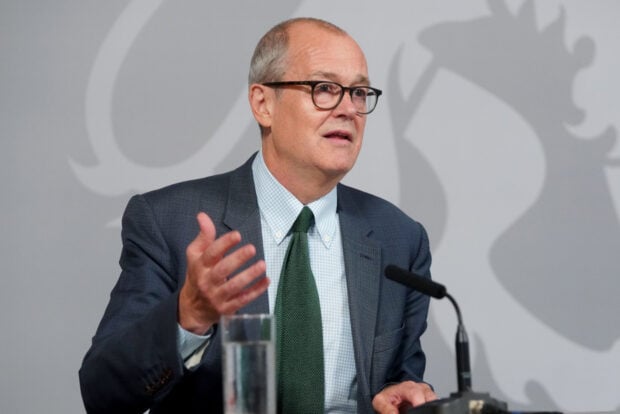Science must inform all Whitehall departments, says chief scientific adviser

The UK government’s chief scientific adviser Patrick Vallance has said Whitehall must do more to incorporate science and engineering expertise, and that science should be considered “as important to the future of the country as the economy or national security”.
In a recent interview on BBC Sounds’ Scientifically, Vallance, who was appointed to the role in 2018, gave an account of his experience advising government during the peak of the COVID-19 pandemic. He described his surprise to learn early on that the sciences were significantly underrepresented among people entering the civil service.
“When I came in, one of the first things I did was to ask the question: ‘Of the Civil Service Fast Stream – the scheme that attracts the bright young things that are going to be the leaders of tomorrow – what proportion of that group had a science or engineering degree?’ The answer was 10%,” he said.
“That’s clearly not right. It’s important that it’s not 90-10 the other way – arts, social sciences, humanities are all incredibly important – but we know we’ve got a job to do to build in that scientific capability right the way across the civil service.”
Vallance added that Britain’s looming energy crisis, the global threat of climate change and the dangers of artificial intelligence, mean science should be considered “as important to the future of the country as the economy or national security”.
Building a scientific superpower
In June, UK prime minister Boris Johnson asked Vallance to head up the government’s new Office for Science and Technology Strategy, based in the Cabinet Office.
Its aim is to support the ministerial council and the national technology adviser by organising the government’s priorities around cutting-edge research and technologies, as well as placing science and technology at the heart of policy and public services. Target areas include reaching net zero, developing new cancer treatments, national security, and the safety of British citizens abroad.
“Should science be everywhere across Whitehall? Yes. Science needs to be everywhere. It can’t sit as though it’s one thing off to the side,” Vallance said.
Asked if he believed the UK needed a minister of science, he replied: “I have nothing against the idea of a very powerful science minister. But don’t think science gets concentrated in one place.”
Vallance also stressed that scientists’ role within government should be to inform rather than instruct political leaders. He said that “science dressed up as policy” had become “very confusing for people” over the months of the pandemic. While science and engineering are “as integral to decision-making and thinking as economics has become through the hard work of economists”, this should not mean “slavishly following” scientists’ advice.
In a Telegraph article in June, marking the launch of the National Science and Technology Council, Johnson said that the UK would repay its “debt” to its scientists by fully embracing science and technology in the future – through increased investment, supportive policies, and by making them an educational priority.
“We have spent too long in a state of semi-detachment from science, as though it was something intimidating and remote from our lives. Too many people in our country lack training in science and technology, too many children think STEM (science, technology, engineering and mathematics) subjects are not for them,” Johnson said.





















